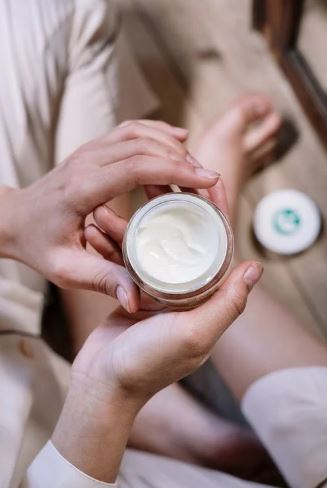Dry skin is an unpleasant and unappealing condition marked by itching, flaking, peeling, scaling, and even cracking. It occurs when your skin does not retain an adequate amount of moisture because of aging, certain health conditions, the use of harsh soaps and household products, and excessive washing. Even if you have inherently oily skin, you may still develop dry skin on occasion.
Dry skin is also a dilemma faced by many people who live in colder and drier environments. The cold winter air may leave you with itchy, red, and rough skin. However, even if you live in a region where winter air is rarely, or never, a concern, most individuals suffer from dry skin at some point.
Typically, dry skin affects your arms, hands, and lower legs, but it can appear on any part of your body. In most cases, making simple lifestyle changes, such as limiting bathing frequency and avoiding perfumed soaps, and using moisturizers are enough to treat dry skin.
Dry skin is rarely serious, but it may be uncomfortable and irritating. If your dry skin is severe and moisturizers and home remedies don’t work, you should contact your doctor.
Causes of Dry Skin
External and internal factors may contribute to dry skin. External factors include cold and dry climates, work environment, and lifestyle habits. Internal factors include age, genetics, personal history of medical conditions, and general health.
Age
The skin regenerates regularly. The epidermis, or top layer of the skin, is made up of cells that are constantly renewing themselves. However, this process of cell renewal slows down with aging. As you grow older, your oil and sweat glands dry up, and your skin loses fat and elasticity. Aging skin requires extra attention and care because it’s prone to dryness, which may lead to itching and scratching.
Genetics and Health Conditions
Some individuals inherit certain conditions that cause skin problems, such as diabetes, eczema, and kidney disease, as well as thyroid and other hormonal imbalances. Other chronic or relapsing inflammatory skin disorders, such as atopic dermatitis, ichthyosis, perioral dermatitis, psoriasis, and seborrheic dermatitis, can result in excessively dry and flaky skin.
Environment
Individuals who live in cold, dry conditions, where there is less humidity and moisture in the air, are more prone to skin dryness. It’s important to keep your skin hydrated during the winter months when both outdoor and interior humidity levels are low.
Occupation
Health workers who wash their hands countless times a day to combat germs and disease, as well as hairstylists who often immerse their hands in water while treating and washing their customers’ hair, are more prone to develop dry, cracked skin. Swimming instructors are also susceptible to dry skin due to the amount of chlorine in pools.
Skin and Hair Care Products
Many soaps and shampoos are formulated to remove oil from your skin and scalp, and in the process, strip out all the moisture, too. Several shampoos, conditioners, and cosmetic products contain propylene glycol, a harsh ingredient that can be irritating to the skin and can cause dryness and dandruff. Perfumed skincare products and deodorants may also irritate or aggravate dry skin.
Cleaning Products
Cleaning products, such as laundry detergent, fabric softeners, bathroom and toilet cleaners, air fresheners, and antibacterial products contain abrasive chemicals that can affect your hands and skin.
Heat
Any heat source, such as central heating, fireplaces, and wood-burning stoves, can lower the humidity in a room and dry out the moisture from your skin.
Excessive Washing
Even though soaking in a hot bath has many relaxing and therapeutic benefits, taking too long in the tub or hot shower can strip your skin of natural oils and moisture, resulting in dryness, irritation, itching, redness, and even peeling.
Treatment for Dry Skin
In most cases, you can soothe dry skin with these lifestyle and skincare remedies. In more severe cases, your doctor may prescribe moisturizers, creams, ointments, and other treatments.
Moisturizers
If you have dry or dull skin, adding a lightweight moisturizer to your daily skincare routine may be quite beneficial. If you live in a cold area or suffer from a skin problem such as eczema or seborrheic dermatitis, a thicker formula can help fix dry and flaky skin. Look for creams and ointments that have ceramides, glycerin, hyaluronic acid, jojoba oil, or shea butter to relieve and repair dry, itchy skin.
Bathing Habits
Avoid taking long, hot baths because doing so strips away much of your skin’s natural oils and moisture. Instead of a steamy shower, just keep the water warm enough to calm and relax your skin without overly drying it. Refrain from using scented or deodorant soaps and alcohol-based products since they can also deplete oils from your skin. Washcloths, loofahs, and bath sponges may also damage your skin. Remember to always moisturize your skin after a bath.
Oatmeal Bath
Many individuals use oatmeal as a natural remedy to relieve dryness and itchiness and repair damaged skin. Oats contain avenanthramides which help reduce inflammation, itchiness, and redness. Ground oatmeal may also be used as a gentle exfoliant to remove dirt and dead skin cells.
Prevention
There are various other measures you may take to avoid developing dry skin, including:
- Use only mild, fragrance-free personal care and cleaning products.
- Pat—do not rub—your skin dry after bathing.
- Apply a deep nourishing moisturizer immediately after drying yourself.
- Drink plenty of water.
- Wear gloves when doing housework to protect your hands from irritants.
Conclusion
Dry, itchy, flaky skin may be unsightly, uncomfortable, and even painful. While it is typically a chronic condition, you can easily manage dry skin by making simple lifestyle changes and using quality moisturizers.
Consult with your doctor if you develop severe dry skin or if other conditions, such as eczema or psoriasis, cause serious skin problems. Early treatment can address your discomfort and reduce your risk of skin infections and other complications.

